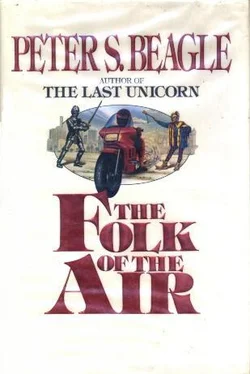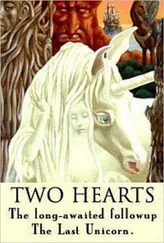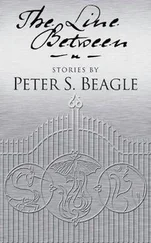Farrell sat up, feeling grumpy and ill-used. “Should see some of the artifacts I’ve waked up with, the last ten years.” He lifted a fold of the mail shirt, finding it surprisingly fluid for all its weight. “All right, I’ll say it. What the hell is this?”
Julie came and sat on the bed. She smelled of the shower and of sunlight, and there was still a fuzzy bloom of water on her hair. “Well, this is a hauberk and this is the camail, to guard your throat, and these are for your legs, the chauses. It’s a complete suit, except for the gauntlets and the arming coat, the padding. And the surcoat. Most people generally wear some kind of surcoat over their mail.”
“Nobody I know does,” he said. He thumped the helm, which responded softly in the tense, eager way that his lute did when he spoke to it. Julie said, “That’s not part of the suit. I made that one a long time ago. I just threw it in for effect.” She smiled as Farrell blinked from her to the helm and back. “I made the chain mail, too,” she said. “Guess what I used.”
“Feels like coathangers. What I want to know is why. I know you can do anything, but it seems like a limited field.” He fingered the silver-enameled links again; then peered at them more closely. “My God, these things are all welded shut. Did you do that?”
Julie nodded. “They aren’t coathangers, though.” She stood up, deftly taking the blankets with her. “Did anyone ever tell you that there’s no bottom to your navel? It just goes on forever, like a black hole or something. Come on and get dressed, I have to go to work.”
In the shower he guessed that she had cut springs apart to make the rings; over oranges and English muffins, she talked freely about interweaving them in a four-to-one pattern and about being taught to weld by a friend whose house she had decorated. But she would not say why she had made the armor, or for whom. “It’s a long story, I’ll tell you when we’ve got more time.” Farrell could tease nothing further out of her. He let it go, saying deliberately, “Doesn’t look nearly as much fun as throwing pots,” so that she could escape into her favorite subject of ceramics. He knew just enough about it to ask fairly intelligent questions; but he liked to watch her talk about her skills.
After breakfast he drove her up to the university, where she did medical and scientific illustrating. “Cross-sections of vertebrae, detail studies of adrenal glands. I like it. I’m good at it.” She had held the job for more than a year.
“You don’t paint anymore,” he said. “I’ll have to take my easel back.” He had made the easel for her five years ago, in Oberlin, the semester that she went back to school. Julie smiled slightly at her hands.
“I never painted,” she said. “I can’t paint. I can draw, so I do that.”
Farrell said, “Jewel, you can do anything. It’s made a difference in my life, knowing you can do anything.”
“No, I can’t!” she cried harshly. “Sorry to disappoint you, but I don’t fool myself so much these days. Stop imagining me, God damn it, it’s time for that too.” Farrell heard her throat close down and her teeth click. She said nothing after that until he stopped the bus on campus, as close to her office as he could go. He opened the door for her and helped her down in a way that began as a chivalrous joke and ended with them standing in a soggy heap of paper plates and torn political posters with their hands on each other’s arms.
“What happens now?” he asked. “What are we now?”
Julie prodded his stomach thoughtfully. “Goodness,” she said. “When I think I might have gone my whole life without ever knowing about that navel.” She pulled his shirt down, tucking it in carefully. “I go out for lunch around noon,” she said.
“I’ll be job hunting. Meet you for dinner.”
“There’a a Moroccan restaurant up near the Waverly. We can have couscous. I introduced you to couscous, didn’t I?”
“In the Rue du Four. Do you know, we’ve never eaten in the same place twice?”
“No,” she said. “Are you serious?” He nodded, thinking she would laugh, but she looked startled and sad. He said, “It’s all right. One thing Avicenna’s got, it’s got restaurants.”
“Don’t,” Julie said. Pain in her voice was as new a sound to Farrell, as if she had begun to crow or whinny—he hardly recognized it. “Poor topcoat,” she said. She took his hands between her own and brought them to her lips, looking at him over them with mocking, marveling eyes.
“Just don’t imagine me, that’s all,” she said. “Seven o’clock at Fouad’s.” She bit his fingers gently and left him there, watching her calm legs carry her away down a gravel walk and through a door. A momentary intuition that he would never see her again pinched his breath, as it had done the day before. You can only watch someone go away so many times . That was why—in spite of himself, in spite of what he had told Ben in the gym—he still mourned, grudgingly and foolishly, for so many doomed creatures and landscapes and ways of being that he had never seen. To feel the loss, to know what was lost. To remember. That might be what I do best, after all. I hope not . He got back into the bus and drove up to Barton Park in the hills, to see about the zoo.
There was one job open, driving an electric train in the shape of an alligator around and around the zoo six afternoons a week, lecturing to his passengers about the animals they were glimpsing. Farrell had hoped for something to do with gorillas; but it was outdoor work, at least, and decently mindless. He agreed to start on the following Monday and left with a copy of the route and the recitation to memorize. There were five and a half jokes in it, underlined in red.
When he went home to change his clothes, he found the driveway occupied by a middle-aged yellow Pontiac, with the left front fender mashed into a rusty fist. He parked Madame Schumann-Heink a block further on and walked back to the house. There were skid marks behind the Pontiac where it had spun up the driveway, clipping off two of Ben’s birdhouses and grinding a patch of wild rosemary to rags. The driver was still sitting behind the wheel, randomly pushing the tape deck buttons, but he looked up and opened the door as Farrell approached. “Hi there,” he said in a cheerful, rather boyish voice. “Hey, you seen my wife yet?”
He was younger than Farrell, with a round, firm, deeply tanned face under a surfer’s helmet of crusty white-blond hair. His sideburns were a shade darker, thick and stubbly; his mustache colorless, almost invisible. Farrell saw that his lower lip had been bleeding.
“I don’t think so,” Farrell said.
The young man got out of the car as he started past it. He was stockily built, Farrell’s height but at least twenty pounds heavier. He said, “But you’re going to see her.”
Farrell stared. The man came closer, smiling. “I mean, if you go in there, into that house, you’ll see her. I mean, that’s where she works, isn’t it?”
“Oh, Suzy,” Farrell said without thinking, and immediately wished he hadn’t. The young man’s friendly expression did not change, but rather became fixed on his face, as if he had died. “Suzy McManus, right, you got it, good old Suzy. Well, I’m Dave McManus. Dave McManus. I’m good old Dave.” He caught Farrell’s hand and shook it long and gently, looking straight into the eyes all the while. His own hand was cold and wet and hard.
Farrell had seen pure white drunkenness before, but not often enough to recognize it at sight. He knew the thing itself, however—the freight train rattling and lurching comically from hilarity to slobbering sorrow, picking up speed as it passed through wild, aimless anger straight on into wild sickness; and then, running smoothly and almost silently now, into a dark place of shaking and sweating and crying, and out again with no warning to where a dazzling snowy light made everything very still. McManus neither swayed nor mumbled and hardly smelled of alcohol at all, but Farrell began to back away from him. McManus’s smile widened with each step.
Читать дальше












